Introducing my series: "The Star-Steaders," a Hard Sci-Fi story about planning an extrasolar colony
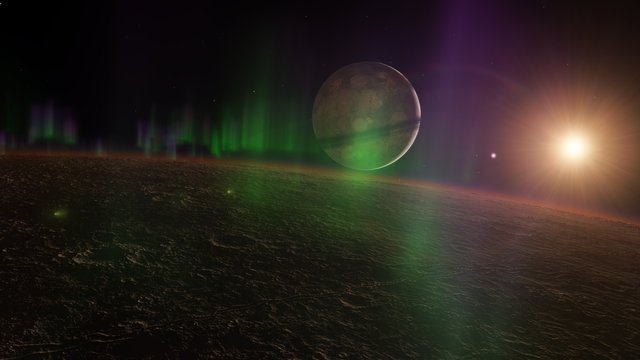
ABOUT THE STAR-STEADERS
Life has a tendency to spread to any environment it can possibly can access, and to adapt to those new conditions. Humans took this one step further, they learned how to adapt through tool use rather than purely by natural selection. In the near future, in the era of 'Cognitive Machines' (Cogs), we will be able to send our tools out ahead of ourselves to other star systems, to create new ecosystems from barren worlds.
If you've ever planned a backpacking trip into the wilderness, you'll understand a glimpse of the forethought that is required for survival. The Star-Steaders is a series that depicts the 'Star-Steading Foundation' (SSF) and their efforts to plan and execute their mission to the stars.
While early exploration missions of the 2040's focused on sending flyby probes to Proxima Centauri b, space infrastructure in our solar system started to expand exponentially thanks to the Cogs. This allowed for extremely large optical telescope arrays, which meant that we could do direct image surveys for planets around nearby stars.
What we found was an extremely promising system surrounding Zeta Tucanae, at just 28 lightyears away. It was a "System with Tightly-packed Inner Planets" (STIP), which meant that there were 6 rocky worlds under 2 AU away from the star. Two of those worlds existed in the habitable zone, and had orbits that indicated a mass very close to Earths. [ I'm still trying to simulate the system to get accurate atmospheric modeling, but they will probably be nitrogen and CO2 dominated with some abiotic oxygen. ]

THE STORY
The first part of the series will be about the logistics involved in sending all of the equipment required to setup a homestead around Zeta Tucanae. The people involved with the Star Steaders Foundation (SSF) lead busy lives, juggling the reality of biological life with the mixed layers of reality called the "Synaptic Net" or SyNet. It's a world where the boundary between man and machine is nearly non-existent, but existential prejudices still exist.
One of the biggest dilemmas in planning the mission is determining who has the 'right' to be a colonist. Only about 400 biological people will embark, with thousands of frozen eggs, and only about a million or so individual Cogs (uplifted minds and native-AIs). Despite the private funding behind the SSF, partnerships with old government agencies means that the Federated Council of Entities (FCE - the evolution of the UN) will have some jurisdiction in deciding who gets to go.
Which naturally creates a black market for stowaways. Any Entity that wants to flee the solar system will be fighting for a spot aboard one of the several SSF Beam-ships. A mysterious Cog known as Polyless has started to incite anger across the underVerse (the deep web) to challenge the SSF and put more Cogs aboard the SSF missions. There are rumors of extremely effective law enforcement Supers (Super Intelligences) in development, which threaten to annihilate the underVerse and to force all "Free Minds" to exist under their singular corporate reign.
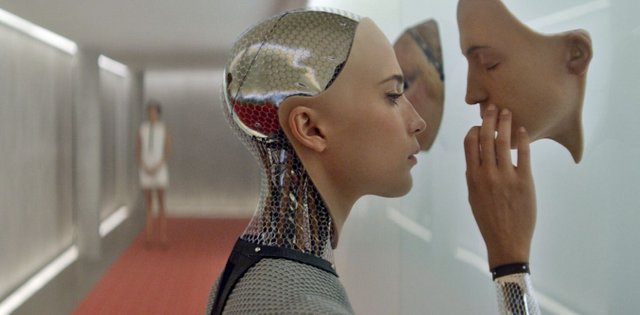
It's a story of biology, meta-biology, existential relativism and flexible identity, set in a world that where social engineering and brain interfacing collide. The goal of the SSF is to establish a new home for biology in another star system, but many Cogs see this as exclusionary and bigoted. Humanity needs machine intelligence to expand and survive among the cosmos, but non-biological does not want to exist merely to be servile to biology.
The only thing that's clear, is that history is written by the winners. Another star system might seem like a blank slate, but all of humanity's failings can be found within ourselves. Metahumanity is even more risky, because we don't yet know what short-comings will befall non-biological sentience.
WHY WRITE ABOUT COLONIZING AN EXOPLANET?
There are a plethora of science fiction stories in all media that portray the narrative of visiting other worlds. Some stories even do a good job at illustrating the process of colonization on those worlds. Some of my favorites are:
- Aurora by Kim Stanley Robinson
- The Red Mars Trilogy by Kim Stanley Robinson (only focuses on Mars)
- Proxima by Stephen Baxter
- Coyote by Allen Steele
- Starship Century - James & Gregory Benford
Of course, I'm a fan of all sorts of science fiction. These select few are simply the ones that might fall roughly into the same category. They describe a narrative where a spacecraft is sent to another world, and an attempt at colonization takes place.
ON FASTER THAN LIGHT TRAVEL
These are of course, stories where SLOWER-THAN-LIGHT travel is a cornerstone of the narrative, and where fighting aliens isn't a cornerstone of the plot.
While I don't rule out FTL as impossible, I do think that it will be extremely unlikely. Bell's Theorem sort of rules it out... Information theory in physics - simply shows FTL to be impossible.
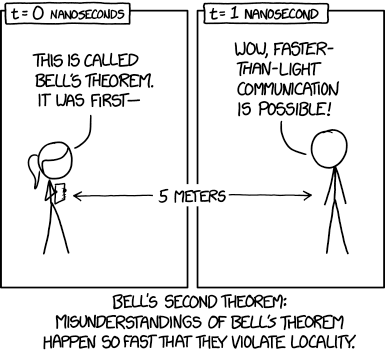
I do think though, that one day we might possibly collapse the local spacetime of multiple star systems to run in simultaneity, due to some manipulation of the gravity of an entire system... but that scale of engineering is so far off and so exotic that it's not worth mentioning. For all intensive purposes, we have a speed limit that can't be broken. Plus, even if it could be broken, the energy required to go FTL versus 0.4C is so incredibly different - it's far more economical to go sub-luminal. Relativistic mass gets heavy very quickly as you approach light speed.
"NOAH'S ARK" IS NOT ENOUGH
Another thing that bugs me about a lot of stories, is the ship they take is already built. It also only takes ONE single starship to setup an entire world with everything required to survive. Colonies on Earth required a lot of support during the early period, and a constant influx of new resources. For interstellar missions, proper planning and automated Von-Neuman style "seeder-ships" can prepare a surplus of habitats in advance of the arriving colonists.
In Coyote, a single starship took off, and the colonists arrived to find a world flush with life that they could eat. I studied astronomy and physics at the University of Washington, and took my planetary science class from Don Brownlee, the co-author of Rare Earth. So I severely doubt we'll find a universe teeming with macroscopic life, like in the games Spore or No Man's Sky.
If we do find life, it will probably be more like in Aurora, where it's just a small mysterious protein. However, I think it's rather pessimistic to assume that a single problematic protein could stop our efforts to expand. Especially considering that the rate of technological advancement is accelerating every year. We could just live in space habitats until we engineer a new organism that can disable the native "prions." Genetic engineering is pretty sophisticated right now with CRISPR, and it's only going to get better in the next four decades.
Exploring a story where an ecology is completely engineered is going to be a lot of fun. It won't be a copy/paste from Earth ecosystem, it will be something entirely new, and humanity has to act as a cautious gardener rather than as a reckless explorer. It's a way of thinking that is essential to our future here on Earth too.
I very much want to tell a story about Ecopoiesis, which is slightly different from terraforming. Ecopoiesis involves the introduction of species to create a stable ecosystem. Terraforming could occur on any world, even one with pre-existing life - ecopoiesis means that you are creating life where there was none. Which will be really easy to do for bacteria, fungi, plants, insects, fish, reptiles, but will be tricky to do for mammals and maybe birds. More on that later.
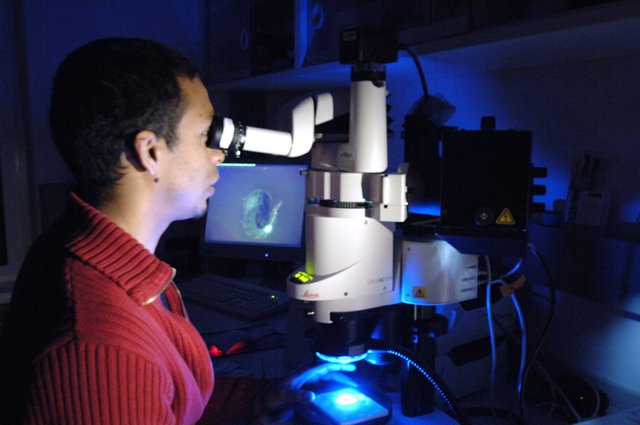
IMAGINING THE FUTURE
Currently I'm reading through Altered Carbon by Richard Morgan, and I'd have to say that some of my favorite science fiction would be Accelerando by Charles Stross, or some of the math-friendly work of Greg Egan like Schild's Ladder or Diaspora.
The first time I heard about the singularity was in 2007. I was working on a class project for a digital arts class and we were asked to invent a form of art 50 years in the future. I was listening to music, imagining a holographic virtual planet when my streaming music stopped playing and a talk show started. I couldn't find which tab was playing it though. It started talking about "The Law of Accelerating Returns" and suddenly I was hooked. My teacher thought I was abducted into some crazy cult following, but I trusted the literature. Ray Kurzweil has the same PhD in cybernetics at MIT as my uncle, so I knew it couldn't be total farce.
Later, in 2011, I became active on Reddit's Futurology community, and have been a mod on there since 2012. I very much disagree with the direction that the other mods of the sub have taken things, and I think Reddit in general is dealing with some monstrous growing pains right now. I'd stake a bet that either Steemit or some service like it will ultimately usurp Reddit. Anybody who remembers the Digg days will understand.
So I have a pretty solid grasp on what the future might look like. Of course, I personally believe that the real future might be harder to explain than any novel can portray, but it only takes a few small sacrifices in realism to make the story relate-able. The science is going to be near 100% accurate, or to the best of my ability, which I think will be interesting in it's own right.
As much as I love Star Trek, Star Wars, Star Citizen, or any other grand space fantasy, it's always still rooted in fantasy.
It also portrays history through the lens of systematic violence. I love Isaac Asimov's Foundation series because it utilizes deception and intrigue without always reverting to gun fights to move the story along. George RR Martin has a similar effect in Fire and Ice - violence does occur, but it's random and awkward. The story progresses by means of projection of power, by illusion and the weaponization of disinformation.
So to summarize - I think we'll be absolutely saturated with intelligent machines by the 2050's, and most 'warfare' by that stage will be purely informational. Which sounds boring until you think about it; which game will hold your attention longer - Slapjack or Texas Hold-Em?
WHAT NOW?
So I've written the first three chapters already, but I'm going to give them a solid edit before I start publishing them on here. I might also wait to see if the Steemit audience likes the premise too, or what would people like to see. I also will rebooting my blog under the domain of Cosmos.Voyage - yeah :D
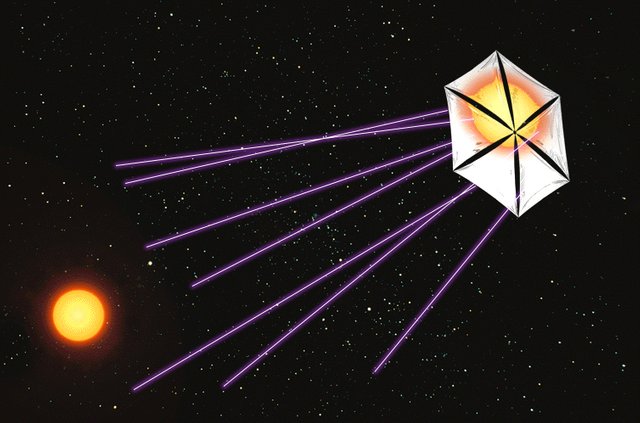
I've also got a friend who can help me to model some of the spacecraft as well. There will also be an entire post where I write out in detail the launch schedule of the beam-ships and explain how they work. Think of it as a slightly less technical, but equally accurate project Icarus. Though I'll be operating on the assumption that machine intelligence exists in the near future.
So I have to ask the question - who wants to go to Zeta Tucanae - and what wouldn't you be willing to do to go there?
Story Parts: